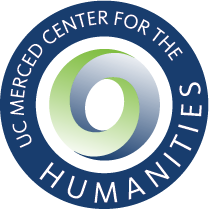
Tabassum “Ruhi” Khan is Associate Professor Media and Cultural Studies at University of California, Riverside. She received her PhD in Media Arts and Studies from Ohio University in 2009 and a Masters degree in Television production and management from Syracuse University in 1998. She teaches courses exploring intersections of media and popular culture in neoliberal globalized contexts with special focus on political-economy of media, construction of environmental debate and formation of digital public spheres. Her monograph Beyond Hybridity and Fundamentalism published by Oxford University Press (2015) analyzes emerging political consciousness of minority Indian Muslim population as increasing access and popularity of digital communication technologies create infinite possibilities for participation and assertion of citizenship rights for a hitherto marginalized population. Khan is also a film maker and has worked as a producer and channel manager with the Discovery Channels International, National Geographic Channel, and STAR TV, in Washington DC, New Delhi and Hong Kong.
My area of expertise is in media studies, cultural studies, postcolonial studies and cultural anthropology. My research examines production of media texts, their distribution and circulation within globalized political economy contexts. I teach courses on South Asian Media and Cultures, specifically focusing on growth of Bollywood industry as a counter narrative to hegemonic Hollywood texts. As a cultural anthropologist I am interested in examining internalizations of mediated discourses and construction of identities (social and individual) from the perspective of minority and marginalized populations. My monograph Beyond Hybridity and Fundamentalism (2015, Oxford University Press) investigates emerging identity of Indian Muslim youth as Indian society embraces neoliberal globalization with a zealous fervor, and as satellite television, Internet, mobile telephones usher in the “cultures of circulation”, negating divisions between cultural production and consumption and situating a marginalized and discriminated population within global circuits. My argument is that as Muslim youth’s religious subjectivity intersects with globalized consumerist sensibility to shape aspirations for upward mobility and desires to be accepted in Indian society as competent consumer citizens, they challenge assumptions about Muslims as regressive, anti-modern and fundamentalists, while pointing to inadequacy of dichotomous frameworks to accommodate their experiences.













